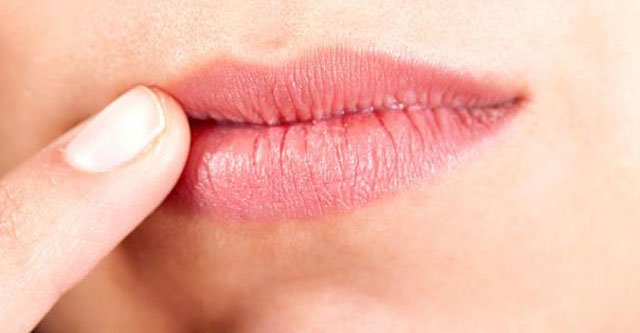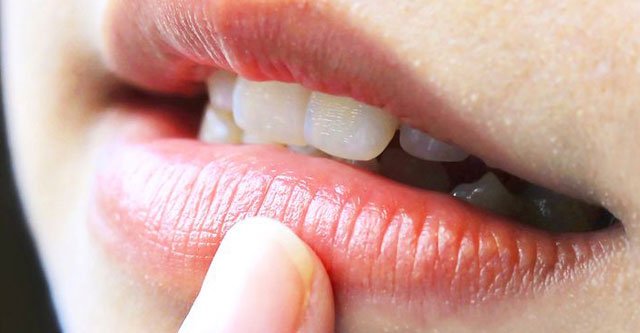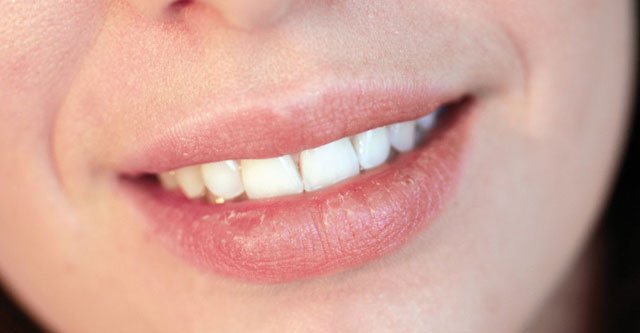Last Updated on June 28, 2021 by Dr Sharon Baisil MD
The answer to this question is simple – Yes, Diabetes can cause dry lips and dry mouth. It is more common in individuals with uncontrolled diabetes.
Dry lips and dry mouth are common occurrences in anyone’s life. It is experienced by diabetics too. But the difference is that when a diabetic person shares it, it is often not just something common or ignorable; it is rather a very serious symptom that needs to be catered to with attention.
It is easy to understand from the name that it is a condition where the mouth and lips feel dry and devoid of moisture. This can affect the individual. It is seen in both Type 1 and Type 2 diabetic patients.
This is a problem that can also lead to other serious dysfunctions. Therefore, it must not be ignored.
A high blood sugar level in the body due to uncontrolled diabetic levels is often the cause behind a dry mouth and dry lips. This condition is termed – Xerostomia.
This is a very uncomfortable feeling. This symptom is often accompanied by other signs such as:
- Dry tongue
- Chapped and cracked lips
- A Rough feeling inside the mouth
- Sores and infections in the mouth
- Painful gums
- Trouble in swallowing food
- Bruises and cracks
- Bad breath
Now, we just had a look at what Dry lips in diabetes are. But what is the reason behind this? Let us find out.
How does Diabetes cause Dry lips?

We confirmed that prevailing diabetic conditions could be the reason behind dry lips. But you might be wondering … how are drying of lips linked to diabetes?
Well, let us now get into answering this essential question.
The primary reason diabetic patients experience a dry mouth is the fluctuating and often high blood sugar levels. When the body’s blood sugar levels see a sudden and unusual sugar level, it can lead to several different symptoms. One of them is dry lips and mouth.
Unmanaged high blood sugar levels can lead to the drying up of the lips. This can be caused by two reasons.
One of the reasons is the intake of high sugar foods that give rise to a high blood sugar level. The other reason is that improper production and release of insulin in the body can also drastically increase blood sugar levels.
The occurrence of dry lips can be either persistent or come and go every once in a while. This depends on when and how much your blood sugar level rises. If it is always at high ends, then it may lead to prevailing dry lips all the time.
These are the two main reasons that can lead to dry lips in diabetics.
Other explanations or causes of dry lips can be due to:
- High blood pressure
- Kidney issues
- Dehydration
- Medicines for blood pressure control
- Antidepressant medicines
These other causes may often be linked to diabetes as well. This is because diabetes is a condition that leads to the development or severing of several bodily issues and ailments.
This has a tendency to become a serious problem and lead to discomfort. Thus, it is necessary to understand this condition well and take appropriate measures to manage it.
Let us have a look at what the effects of dry lips can be. Only when we know what the consequences of it are can we properly resolve the problem.
Here we go.
What are the effects of drying lips due to diabetes?

We now know what dry lips are, how they are connected to diabetes, and their causes. Now, let us go on to have a look at what the effects of dry lips and dry mouth can be.
The drying up of moisture in the mouth can be very uncomfortable. It has the following effects:
- Drying mouth and lips is a cause for less saliva production, leading to discomfort in swallowing food or water.
Saliva in the mouth plays an important role in directing the food in its right path and keeping away bacteria and other microbes that may lead to harmful effects in the mouth.
- Dryness in the lips results in cracked and chapped lips that can often be painful. If too severe, they can even bleed. It is also very uneasy and hampers with sensation.
- Dry mouth and lips can also lead to gum sores, diseases, and infections. It can hamper daily eating too. Hence, it is very essential to keep a check on it all.
- The risk of fungal infection in the mouth can also increase. There can be an infestation of oral yeast leading to inflammation and infection.
- These problems and increasing symptoms can also give rise to tooth decay. This makes the diabetic condition even worse and adds several other issues to the health.
Hence, the negative effect of blood sugar problems can also have a drastic influence on the drying up of lips and mouth. The persistently high levels of carbohydrates in the body can contribute to other complications of health.
To keep away from these health-related discomforts, one must make sure to have a good meal and diet plan that suits their diabetic needs. Restrictions and medicines must be followed very efficiently to ensure protection and prevent the severing of these symptoms.
There are many other ways to keep away dry lips that are caused by diabetes. We have a list of tips and tricks that can help you overcome this dry lips and mouth issue.
Let us move on to look at these effective ways to deal with dry lips and mouth.
9 Easy Solutions to prevent of Dry Lips in Diabetes

Now you are aware of how and why this drying of the lips due to diabetes. And now, it is time to look at some preventive and curing measures to help your prevailing condition of dry lips and mouth.
It can create several uncomfortable issues and lead to bad maintenance of the teeth and gums, leading to many other problems. Therefore, it is very crucial to take into consideration the ways that can solve these problems.
We have some tips to include in your everyday schedules to ensure safety and keep your diabetic symptoms under check.
Here are 9 easy tips to get rid of them:
- First of all, it is important to take your insulin doses properly. Insulin doses help to keep the blood sugar levels out of high risks of spiking. Thus, it can help to maintain the blood sugar levels and hence keep away other symptoms too. Also, make sure to attend your doctor’s and dentist’s appointments regularly.
- This tip might seem too simple, but it is one that works the best. It is important to drink enough water all day. This is anyway a required criterion for diabetic patients besides;, it also helps with retaining moisture in the mouth. It is advisable to drink around 8 to 10 glasses of water per day.
- If you are a frequent user of cigarettes, tobacco, and a regular alcohol drinker, it is necessary to pay attention to these things. They can also lead to dry lisp and mouth. The frequency of smoking and drinking must either be reduced or completely cut off.
- If you live in a dry and dehydrating place, you can use a humidifier in your rooms to maintain a moist environment.
- It is also aided well if you brush your teeth at least twice a day. This keeps the gums, tongue, and mouth safe and prevents any excess damage due to dry lips or mouth.
- Flossing is a good way to let the mouth be clean and keep away any germs that may lead to infection. Possibly use an alcohol-free mouthwash for best results.
- Sucking on mints, chewing gums, etc., can also keep the mouth protected from moisture loss. It also keeps the mouth cool and comfortable.
- You can also use moisturizing lip care ointments that can prevent chapped lips and keep away the pain. There are many medicinal balms available too.
- Include foods that have high fiber in them. They help keep the sugar levels low and controlled, leading to the prevention of other symptoms.
References
- https://www.healthline.com/health/diabetes/dry-mouth-diabetes#treatment
- https://www.ajol.info/index.php/ahs/article/view/107368
- https://onlinelibrary.wiley.com/doi/abs/10.1111/j.1754-4505.1996.tb00844.x
- https://www.sciencedirect.com/science/article/abs/pii/S1876382010000089
- https://www.nejm.org/doi/full/10.1056/NEJM199409293311307
- https://onlinelibrary.wiley.com/doi/full/10.1111/j.1834-7819.2011.01347.x
- https://care.diabetesjournals.org/content/31/4/701.short
- https://www.ncbi.nlm.nih.gov/pmc/articles/PMC1899776/
- https://journals.sagepub.com/doi/abs/10.3747/pdi.2010.00113








